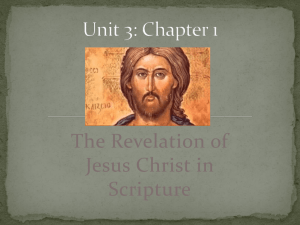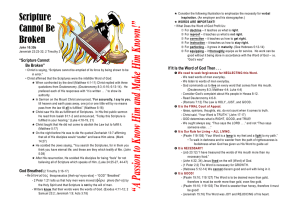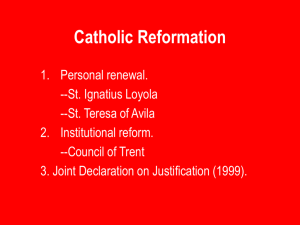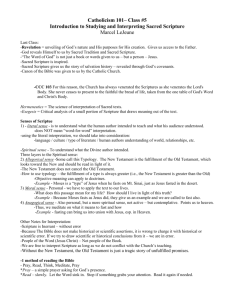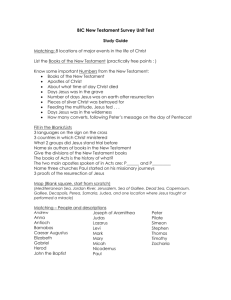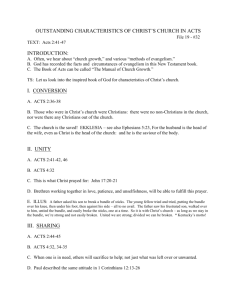TVP_Licensure_Exam_Study_Guide
advertisement
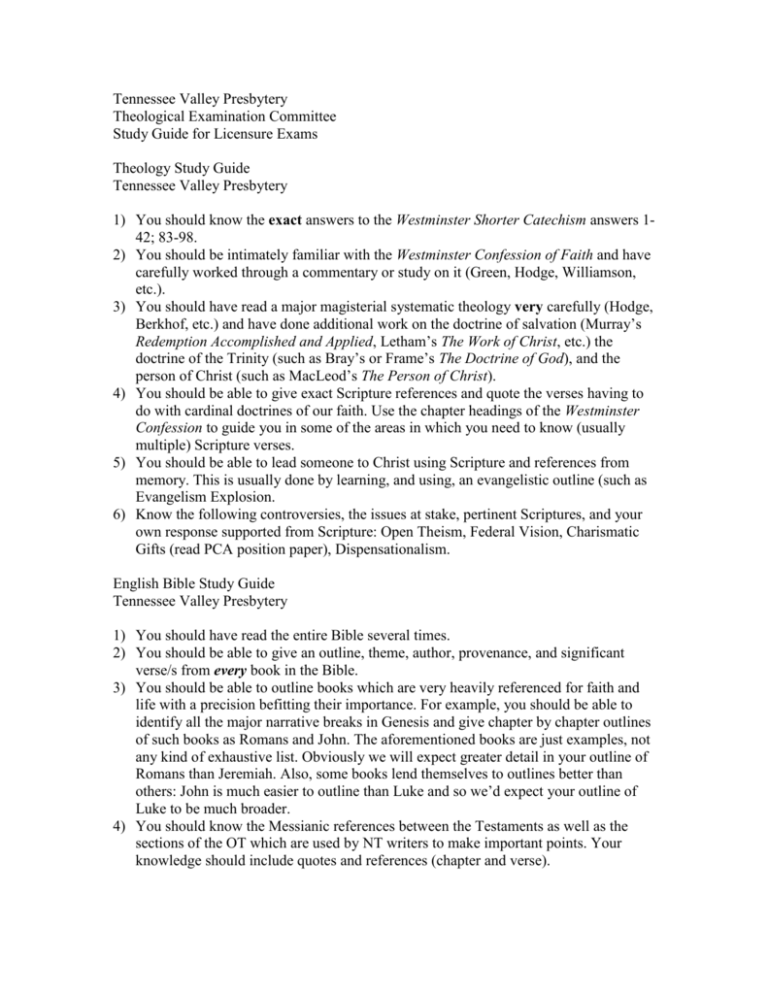
Tennessee Valley Presbytery Theological Examination Committee Study Guide for Licensure Exams Theology Study Guide Tennessee Valley Presbytery 1) You should know the exact answers to the Westminster Shorter Catechism answers 142; 83-98. 2) You should be intimately familiar with the Westminster Confession of Faith and have carefully worked through a commentary or study on it (Green, Hodge, Williamson, etc.). 3) You should have read a major magisterial systematic theology very carefully (Hodge, Berkhof, etc.) and have done additional work on the doctrine of salvation (Murray’s Redemption Accomplished and Applied, Letham’s The Work of Christ, etc.) the doctrine of the Trinity (such as Bray’s or Frame’s The Doctrine of God), and the person of Christ (such as MacLeod’s The Person of Christ). 4) You should be able to give exact Scripture references and quote the verses having to do with cardinal doctrines of our faith. Use the chapter headings of the Westminster Confession to guide you in some of the areas in which you need to know (usually multiple) Scripture verses. 5) You should be able to lead someone to Christ using Scripture and references from memory. This is usually done by learning, and using, an evangelistic outline (such as Evangelism Explosion. 6) Know the following controversies, the issues at stake, pertinent Scriptures, and your own response supported from Scripture: Open Theism, Federal Vision, Charismatic Gifts (read PCA position paper), Dispensationalism. English Bible Study Guide Tennessee Valley Presbytery 1) You should have read the entire Bible several times. 2) You should be able to give an outline, theme, author, provenance, and significant verse/s from every book in the Bible. 3) You should be able to outline books which are very heavily referenced for faith and life with a precision befitting their importance. For example, you should be able to identify all the major narrative breaks in Genesis and give chapter by chapter outlines of such books as Romans and John. The aforementioned books are just examples, not any kind of exhaustive list. Obviously we will expect greater detail in your outline of Romans than Jeremiah. Also, some books lend themselves to outlines better than others: John is much easier to outline than Luke and so we’d expect your outline of Luke to be much broader. 4) You should know the Messianic references between the Testaments as well as the sections of the OT which are used by NT writers to make important points. Your knowledge should include quotes and references (chapter and verse). 5) You should be very familiar with the Documentary Hypothesis and be able to respond to it critically and Scripturally. 6) You should be very familiar with issue and debates concerning the Old and New Testament canons and be able to describe the canonization process. 7) You should know some of the important “Gnostic Gospels” and be able to give arguments against the inclusion of Gnostic Gospels in the canon, and should know the Da Vinci Code “gospels” specifically. 8) You should have read an Old and New Testament Introduction very carefully. It would be good to study these for the test. Recommended texts: OT, Walton and Hill; NT, Carson, Moo and Morris. Some introduction texts are not very helpful for this sort of study (Longman and Dillard, Harrison, etc.) 9) You should know where sections of Scripture are which deal with major life issues: divorce, marriage, grief, avoiding sin, coming to faith in Christ, submission to authorities, dealing with vocation, qualifications for church office, set-up of church government, etc.. 10) You should be able to identify the covenants in Scripture and be able to give their exact locations as well as their unity and diversity. You should have studied a Reformed biblical theology text (such as Christ of the Covenants by Robertson) very carefully. 11) You should have studied a text dealing with New Testament backgrounds (such as Julius Scott) carefully as well as paying careful attention to background material on the Old Testament. 12) You should be able to give the entire “story” of salvation from Adam to Malachi, with all of the major characters and events tied together. Obviously, you don’t need to give a detailed account of all the OT kings, but you do need to know major events. Study Guide for the Polity Exam TVP 1) Read the BCO through once without stopping. 2) Read the BCO through with a pen in hand and take notes of things which are confusing or to which you do not think you can submit. Talk with your supervisor about these things. 3) Purchase the Study Guide for Licensure and Ordination Exams by Bryan Chappell from the CE&P Bookstore. Write out answers, using your BCO, to all of the BCO questions. Study these answers. 4) Don’t worry if you’ve done everything above.
